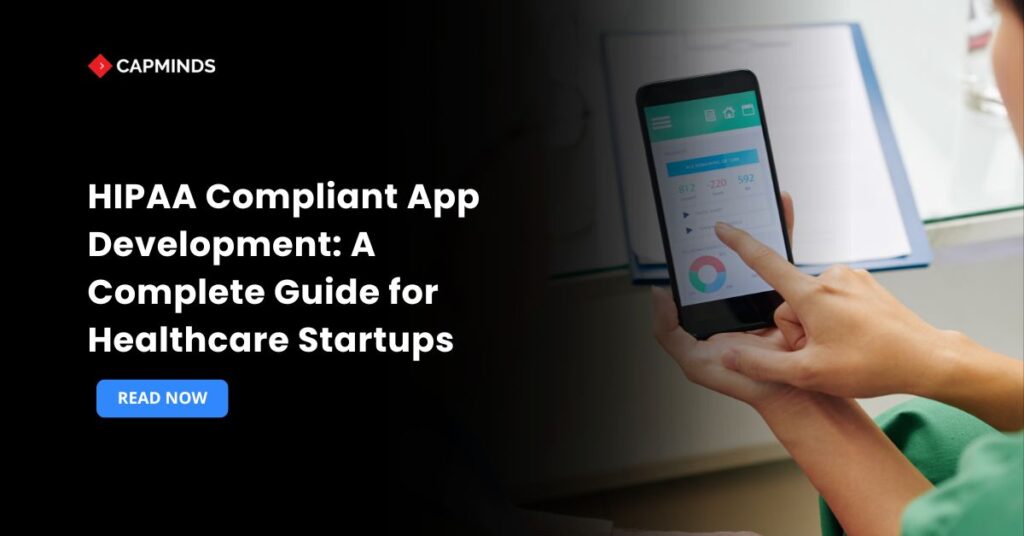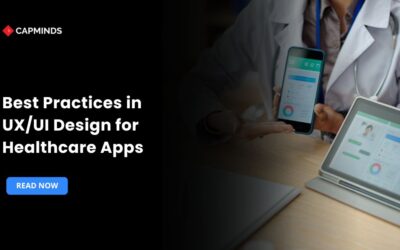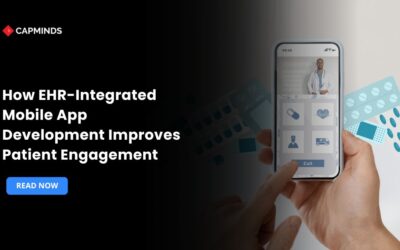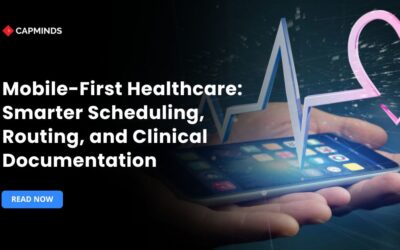HIPAA Compliant App Development: A Complete Guide for Healthcare Startups
The healthcare sector is changing very fast, and the healthcare mobile app development is the center of innovation. To achieve substantial change, a healthcare startup should not be compelled to develop a mobile app that does not work; rather, it should be a move of trust, security, and absolute compliance with regulatory requirements.
The app must comply and in accordance with the regulatory guidelines. Failure to obey its mandates means a high probability of spending money on paying expensive fines, ruining our reputation, and failing in the end.
This step-by-step guide will take you through the necessary considerations of the HIPAA-compliant app development to make sure that your solution is safe, legal, and poised to transform the way of providing care to patients.
Why Your HIPAA Compliance is Important for Your Healthcare App
Consider starting an innovative application that will help patients to meet the specialists, organize prescriptions, or track chronic conditions. Take a moment to consider that the app suffers a data breach and obtains sensitive PHI.
The results would be disastrous. This is why HIPAA is important for your app development. It establishes strict national requirements concerning the protection of sensitive patient information, including all aspects of PHI storage and transmission to its access.
For healthcare mobile app development, HIPAA compliance is not a checkbox; the whole application must be built. It protects patient privacy, builds trust in your platform, and shields your startup against costly fines capable of bringing down your business. The important thing is to understand the best practices of HIPAA mobile app security at the very beginning.
Pillars of HIPAA Compliance for Mobile Apps
It is important to understand the fundamental elements of HIPAA, which directly influence the work of a healthcare start-up app developer, before delving into the details:
1. Privacy Rule
This rule is one that stipulates access to PHI by whom and under which circumstances. Your application needs to possess well-defined systems of patient consent to data collection and sharing, as well as effective controls that prevent unauthorized access.
2. Security Rule
This is the area where you will be making most of your technical work. It describes administrative, physical, and technical defenses that are necessary to safeguard ePHI. This contains encryption, access controls, audit logs, and data integrity.
3. Breach Notification Rule
This rule requires prompt notification to the affected individuals, the HHS, and, in certain instances, the media, in case of an unfortunate incident of data breach. There should be a well-defined incident response plan in your app and other related systems.
Any application that develops, accepts, stores, or forwards PHI is viewed as a covered entity or a business associate and therefore it is exposed to the domain of HIPAA. Thus, to know how to create a HIPAA-compliant mobile app, one must first dive into an in-depth explanation of these rules.
Key Steps for HIPAA-Compliant Mobile App Development
The careful design and construction of a HIPAA-compliant mobile app development solution would necessitate careful design at every step, even security and privacy.
1. HIPAA Risk Assessment
Conduct risk assessment and threat model assessment before one line of code has been written. Identify the potential vulnerabilities to your app architecture and data flows and integrations.
What kind of PHI will your app deal with? Where will it be stored? Who will have access? The initial step in creating effective guards is to understand them, and this is an integral aspect of HIPAA mobile app security best practices.
2. Data Encryption in Mobile Apps
The HIPAA-compliant mobile app development is built around encryption. Encryption of all PHI, whether in transit or at rest, should be accomplished with strong and industry-standard algorithms.
This is the encryption of information on its way through your application, servers, embedded third-party applications and even the way it is stored on servers or on the device itself. Consider end-to-end encryption wherever possible.
Related: The 2025 Ultimate Guide to App Development for Healthcare
3. Strong Authentication and Access Controls
Implement multi-factor authentication for all users who have access to PHI. Use the “least privilege principle” – users must only be given the least amount of PHI to do their job functions.
This has in-app granular role-based access controls and your backend systems. It is also required to have strong password policies.
4. Safe Data Storage and Transmission
The backend servers and cloud services of your app have to be hosted on HIPAA-compliant servers. HIPAA-eligible services are available on providers such as AWS, Azure, and Google Cloud, but it is your duty to make sure that it is properly configured and that you have signed a Business Associate Agreement with them.
This BAA is a critical part of startup healthcare app development, which is under the law that binds the vendor to comply with HIPAA. Any data flow should be performed through secure channels such as the HTTPS protocol with TLS encryption.
5. Audit Trails and Monitoring
Keep detailed audit records of every activity in your app in reference to PHI. This incorporates the individuals who accessed what information, when, and where.
Such logs play an important role in identifying suspicious acts, reactions to security attacks, and showing compliance during an audit.
They should have regular monitoring and alert systems that will identify anomalies. This assists in learning how to develop a mobile app that is compliant with HIPAA successfully.
6. Secure API Development
Assuming that your app has third-party systems, or at least APIs, make sure the APIs are security-focused.
Limit rate and use authentication tokens, API keys, and prevent unauthorized access. All API endpoints containing PHI are to be properly checked for security vulnerabilities.
7. Periodic Security Checking and Maintenance
Creation of mobile applications with HIPAA compliance is an ongoing process. Do periodic penetration tests, vulnerability tests and code inspection to identify and remediate security threats.
Keep up with the new security releases on operating systems, libraries, and frameworks. A key to the best practices of the HIPAA mobile apps’ security is continuous vigilance.
8. Business Associate Agreements (BAAs)
Any third-party vendor or service provider that forms, obtains, upholds, or transmits PHI on your behalf, such as cloud hosting, analytics providers, or payment providers, must sign a BAA with your startup.
This holds them legally compliant with HIPAA. The failure to consider BAAs is a trap most healthcare start-up application development faces.
9. General Privacy Policy and User Consent
A user-friendly privacy policy will be included in your healthcare application regarding the collection, use, storage, and sharing of user information.
Make users explicitly agree to data collection and processing, and make it understandable and controllable to users.
Healthcare App Development Services for Secure Healthcare Innovation
At CapMinds, we specialize in transforming healthcare ideas into compliant, scalable, and high-performing digital solutions. Our HIPAA-compliant app development services ensure every product we build meets the highest standards of data security, privacy, and interoperability, empowering startups, clinics, and enterprises to innovate with confidence.
From concept to deployment, we integrate regulatory expertise with modern development practices to deliver healthcare apps that are safe, efficient, and trusted by patients.
Our specialized healthcare app development services include:
- HIPAA-Compliant Mobile App Development
- Custom Healthcare App Development Solutions
- Cloud-Based Healthcare Software Development
- Secure API & EHR Integration Services
- Ongoing Compliance, Testing & Maintenance
Let CapMinds be your technology partner in building future-ready healthcare apps that safeguard patient data, ensure compliance, and accelerate your digital transformation journey.
Transform your healthcare vision with CapMinds today.




